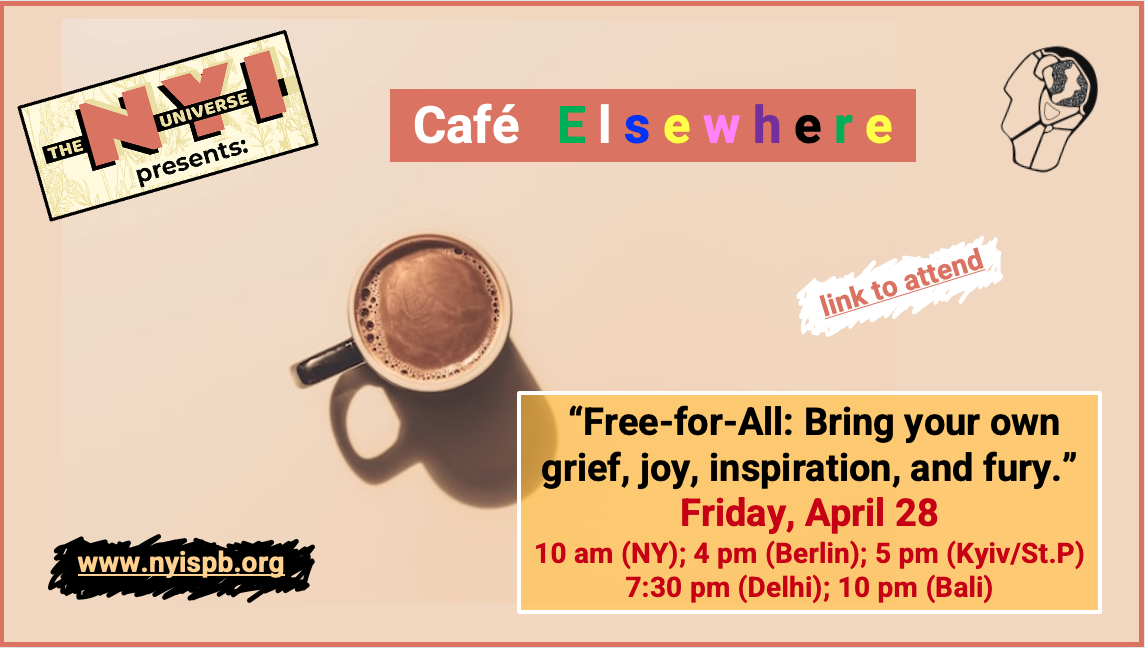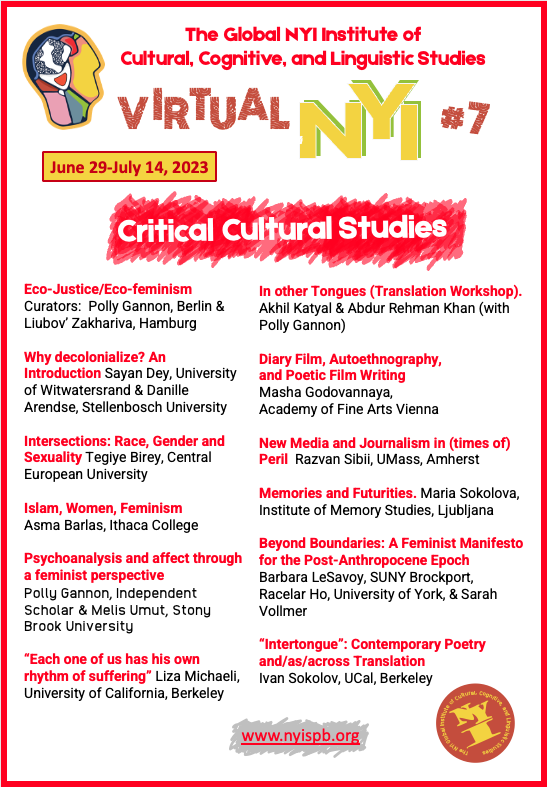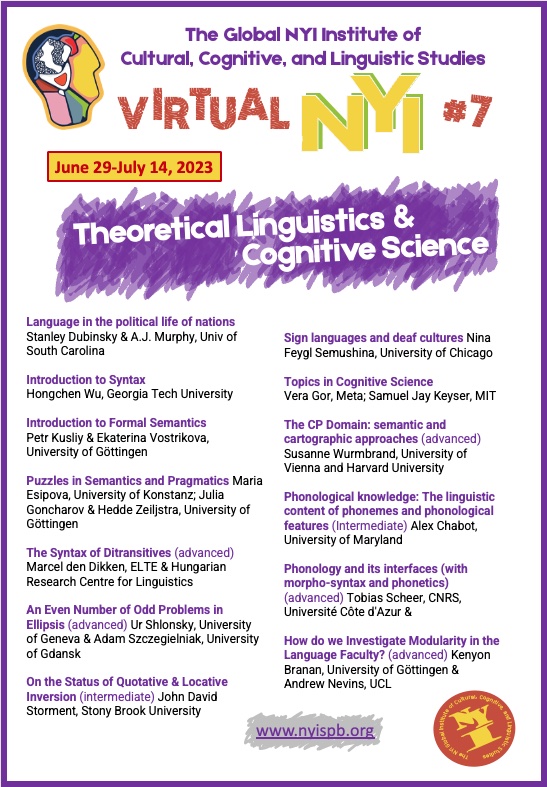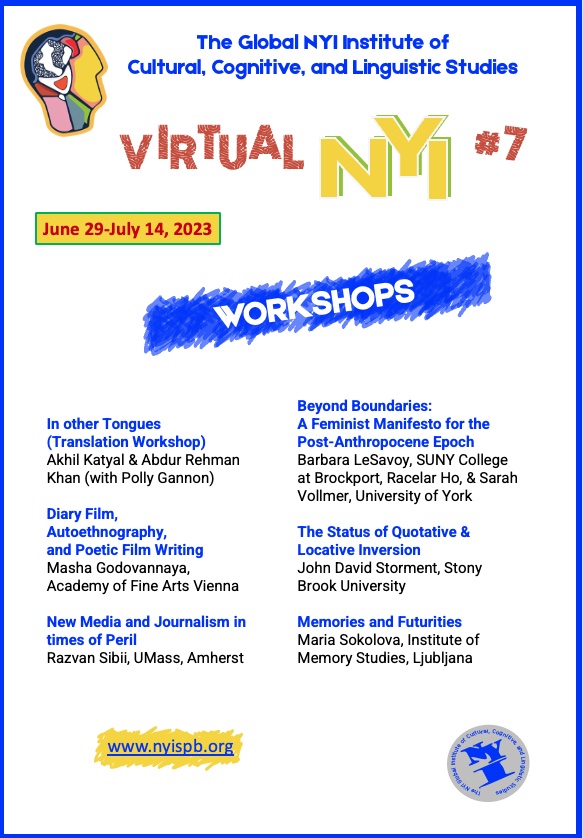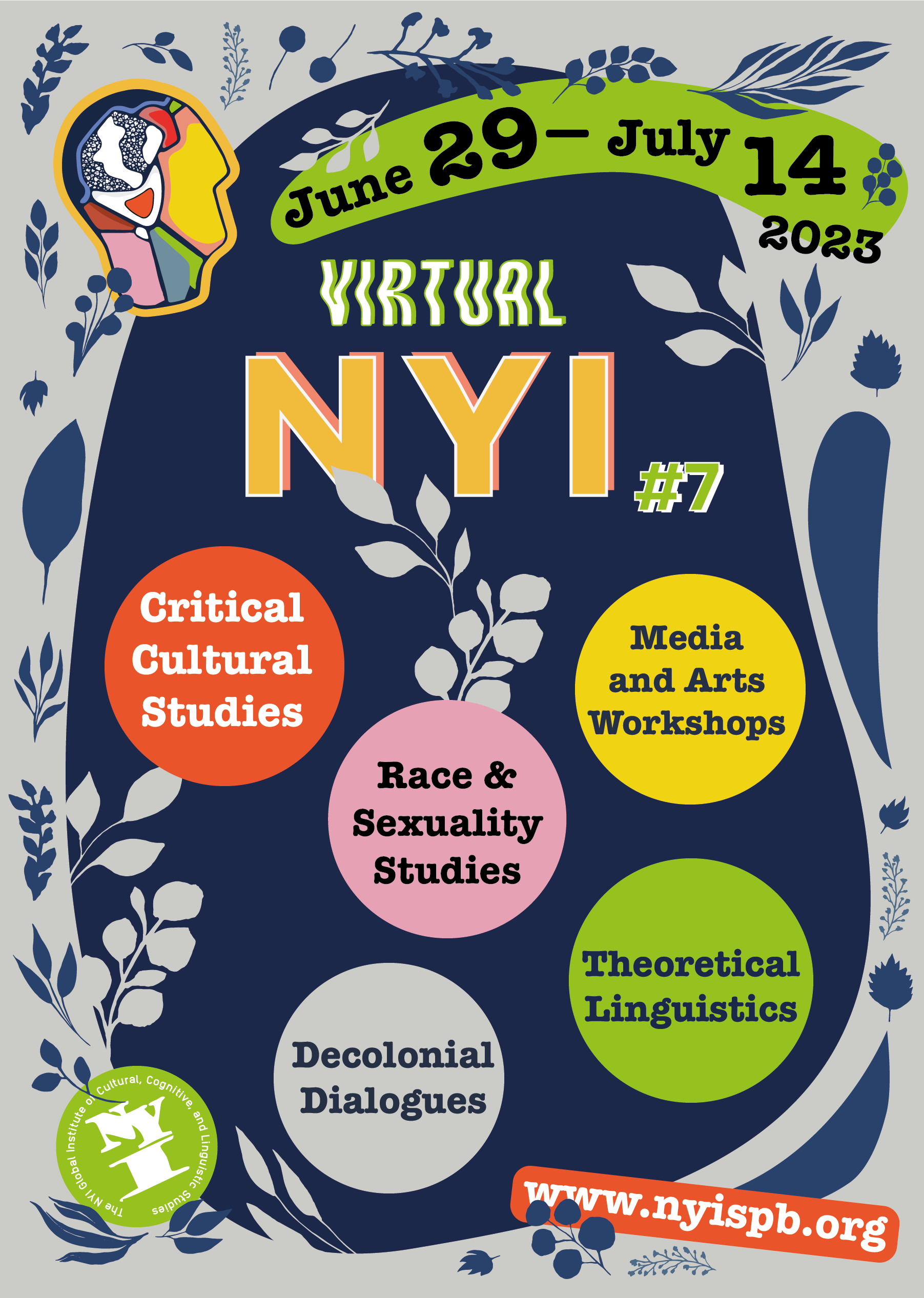"Gitksan (pre)verbs"
Neda Todorović
(Reed College)
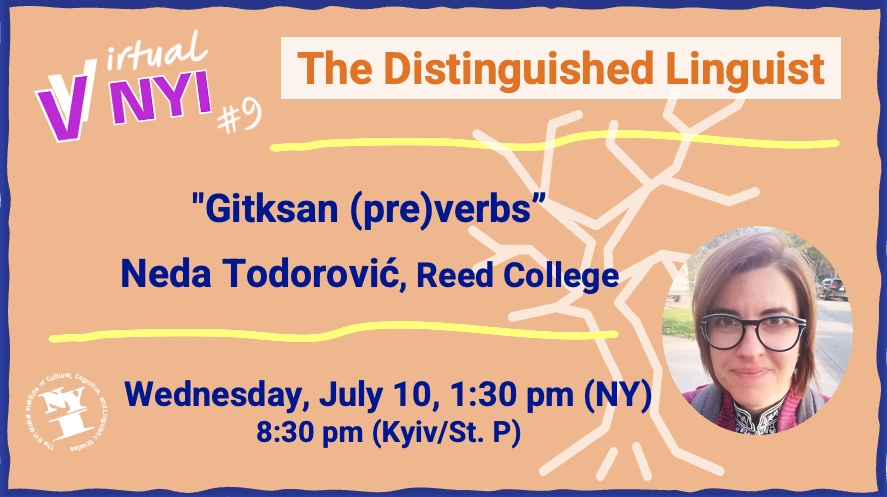
V-NYI # 8
FESTIVAL OF WORKSHOPS
FRI, JANUARY 19, 8:45 am (NY)
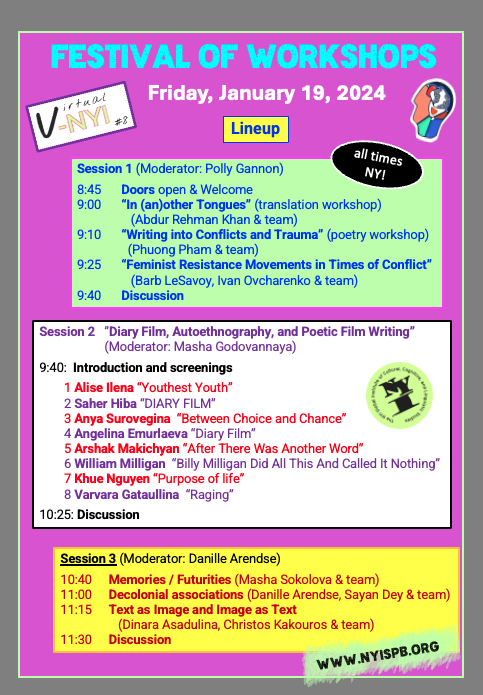
From the V-NYI #8 Opening ceremony:
• Slide show of student demographics, program info
• Multi Media 5-minute Introduction to V-NYI #8
(music by Pink Floyd as interpreted by Alpha Blondy; video by AnyaN)
Enjoy!
Global Solidarity Lecture Series
1:00-2:20 pm (NY)
January 9/10/11/12;15/16/17/18
(lecture descriptions) (click here to attend)
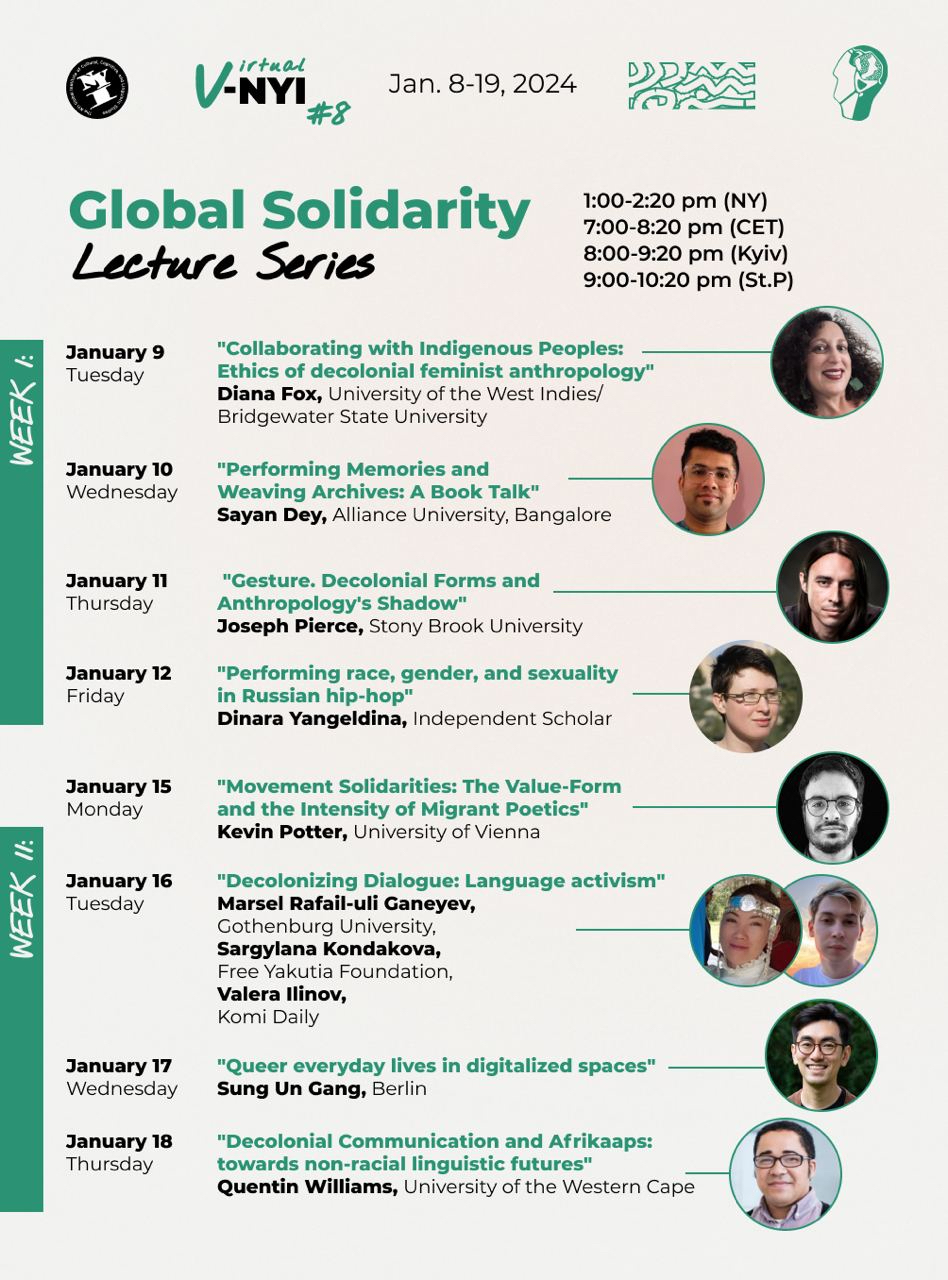
V-NYI Distinguished Linguist
Dissimilation:
Shrinker of Clauses
David Pesetsky, MIT
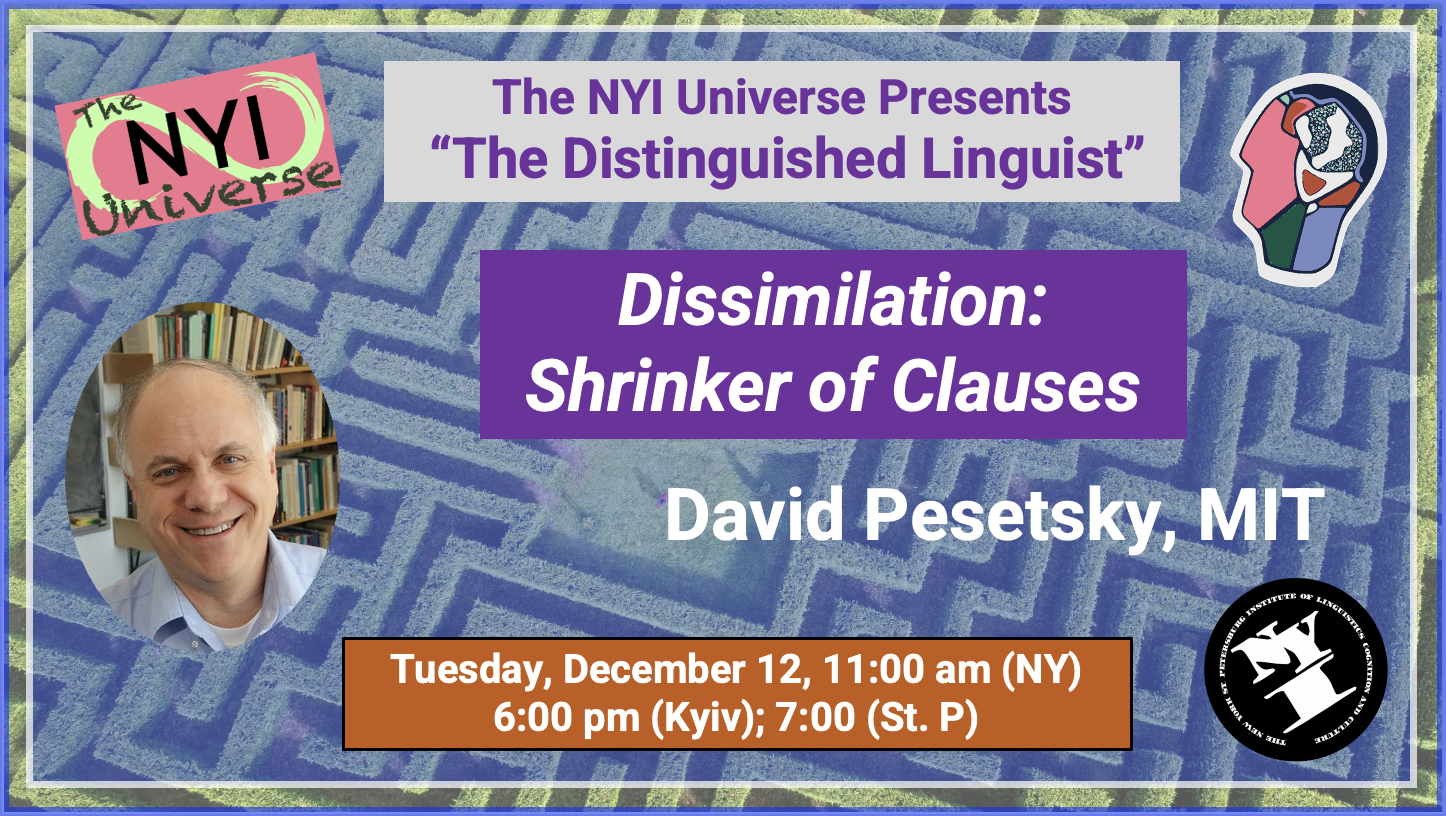
Tuesday, December 12, 2023
(11 am, NY; 5 pm CET; 6 pm Kyiv; 7 pm St.P)
Cognitive Science and the Arts
Discussion of
Repetition in the sister arts
with Samuel Jay Keyser, MIT
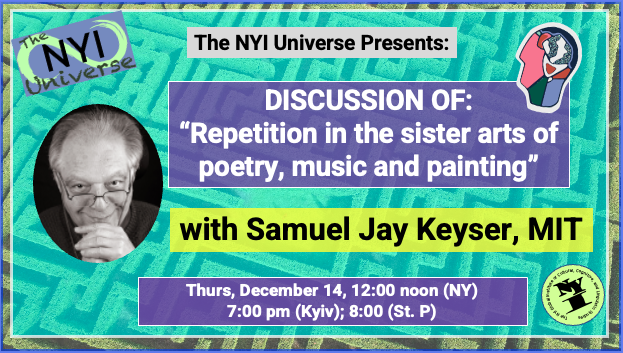
DISCUSSION: Thursday, December 14
(12 noon, NY; 6 pm CET; 7 pm Kyiv; 8 pm St.P)
V-NYI #8 "Distinguished Linguist" Lecture Series
Jan 8-17, Mon/Wed/Fri, 11:30 am* (NY)
(*Barbara Partee lecture Jan. 8, 1:00 pm start)
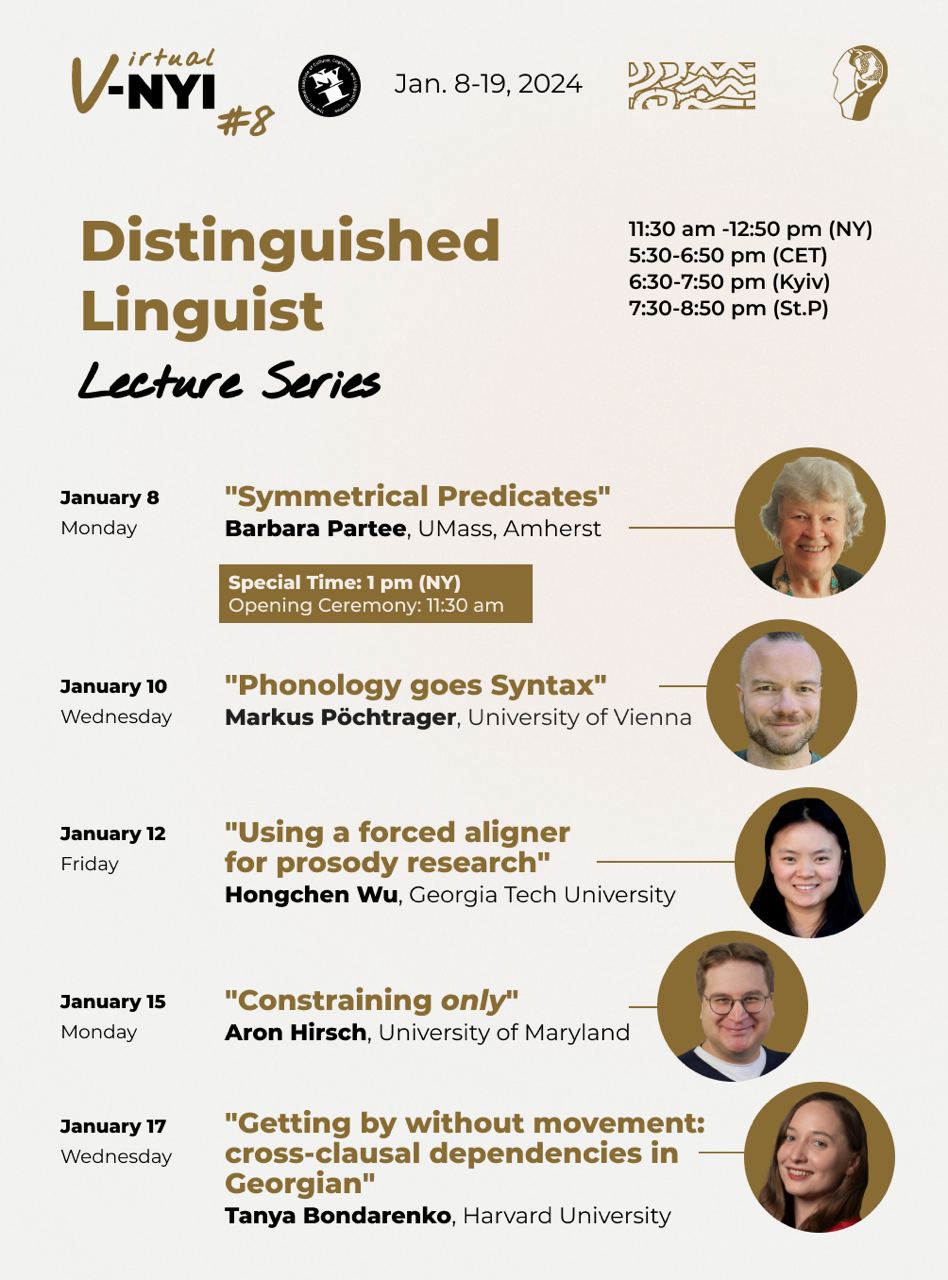
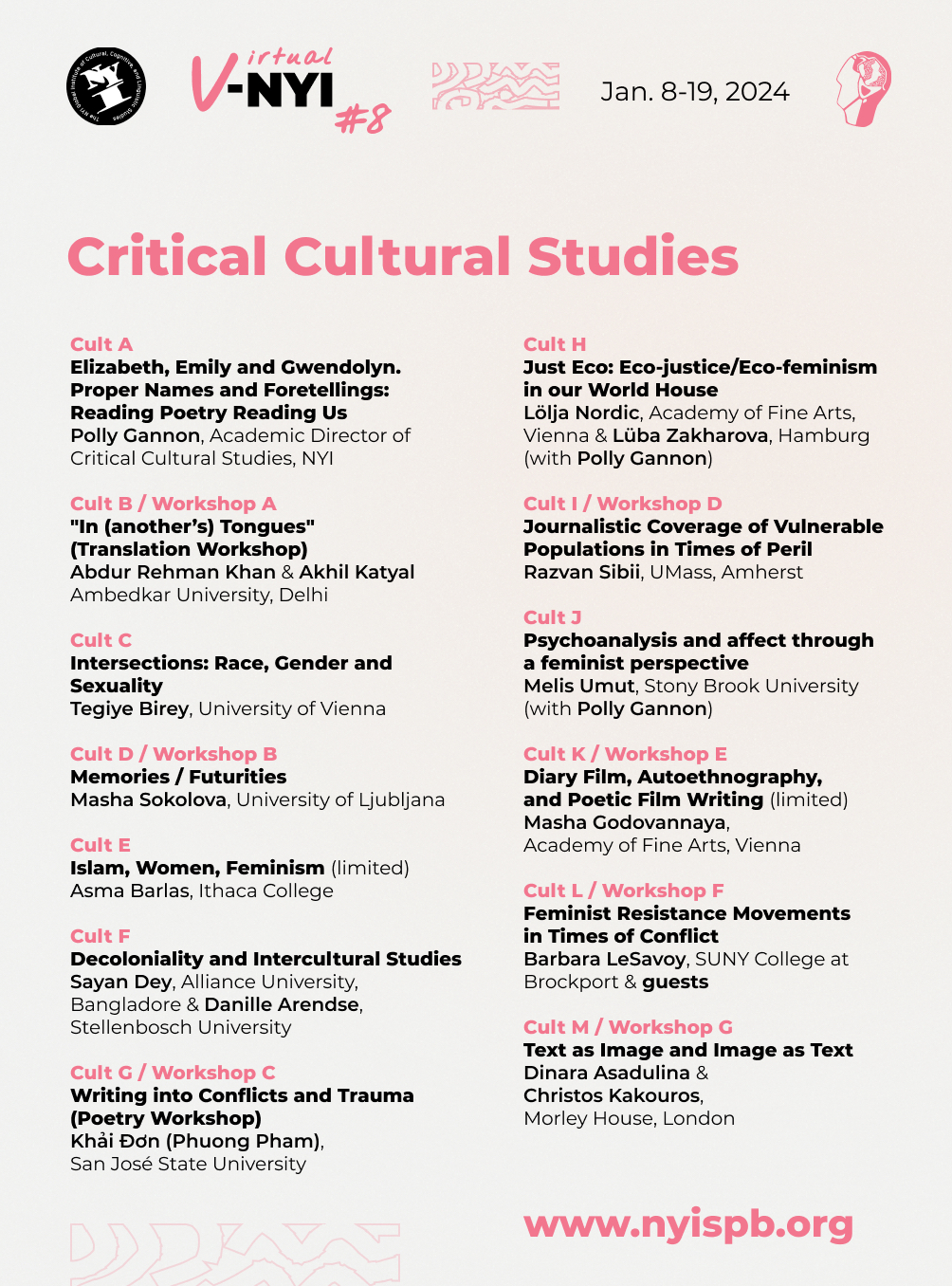
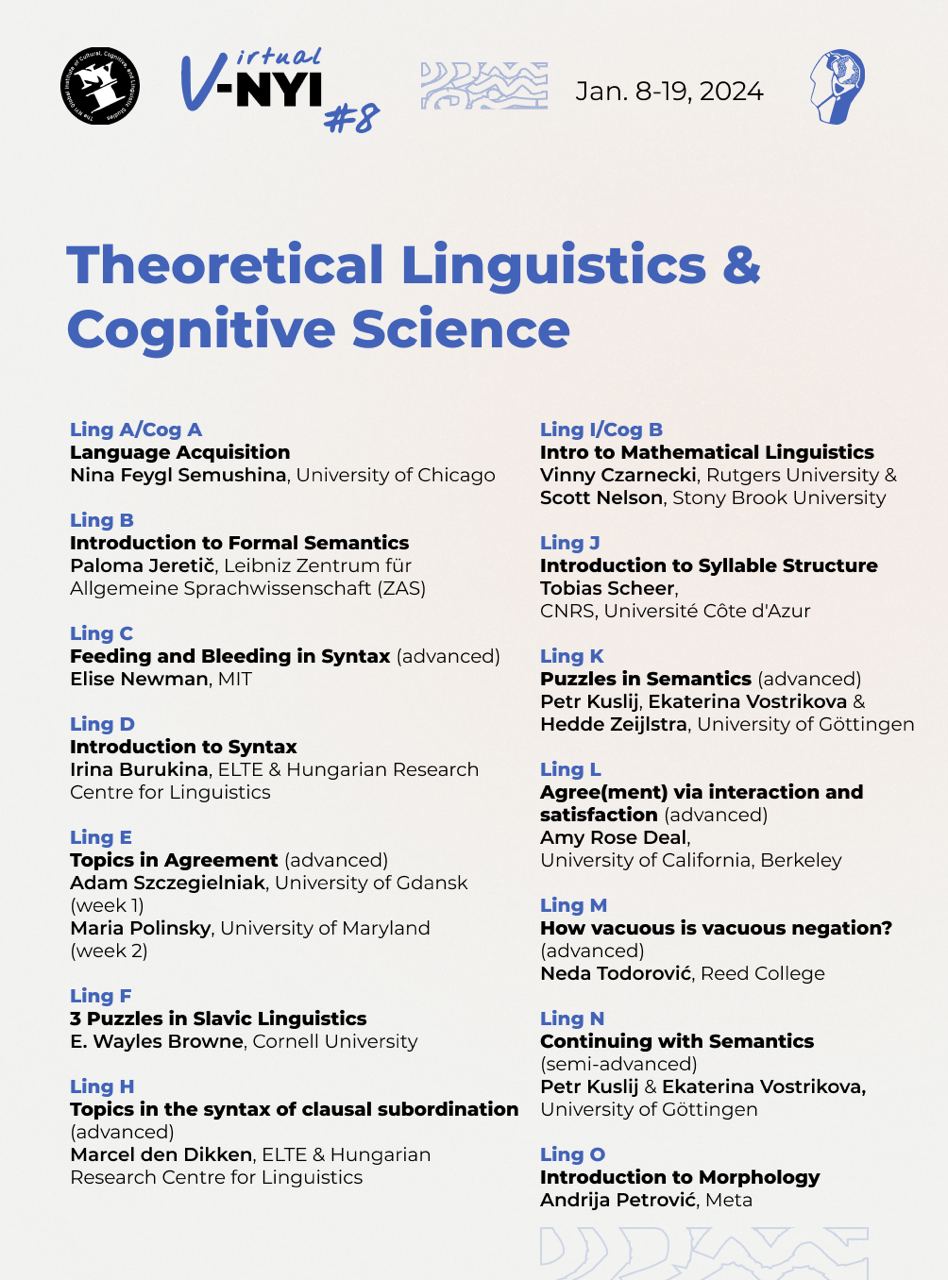
Constellations Journal Launch Event
Tuesday, November 21, 2023
(11 am, NY; 5 pm CET; 6 pm Kyiv; 7 pm St.P)

announcing: V-NYI #8!!
January 8-19, 2024
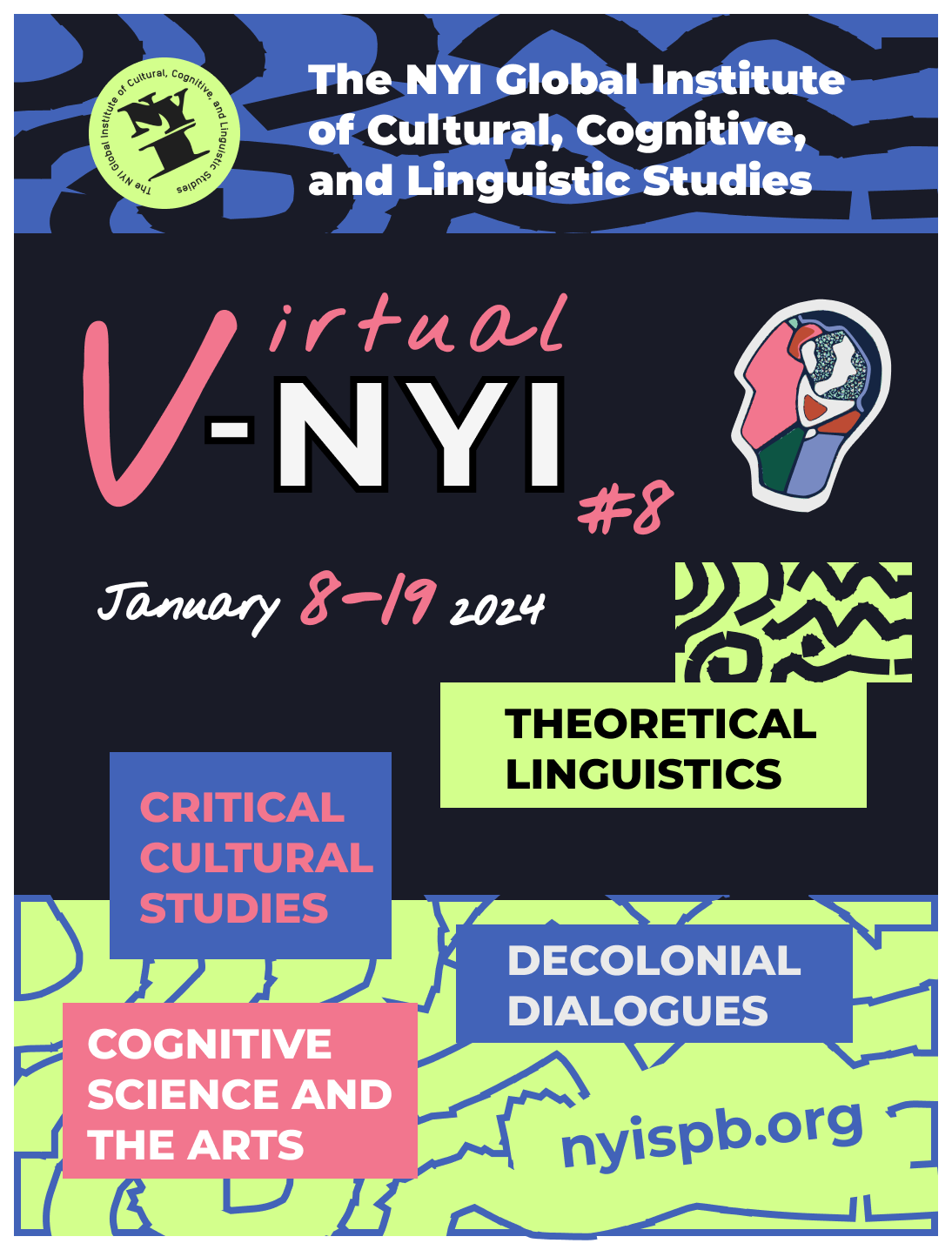
Global Solidarity Series
all talks at 1:30 pm
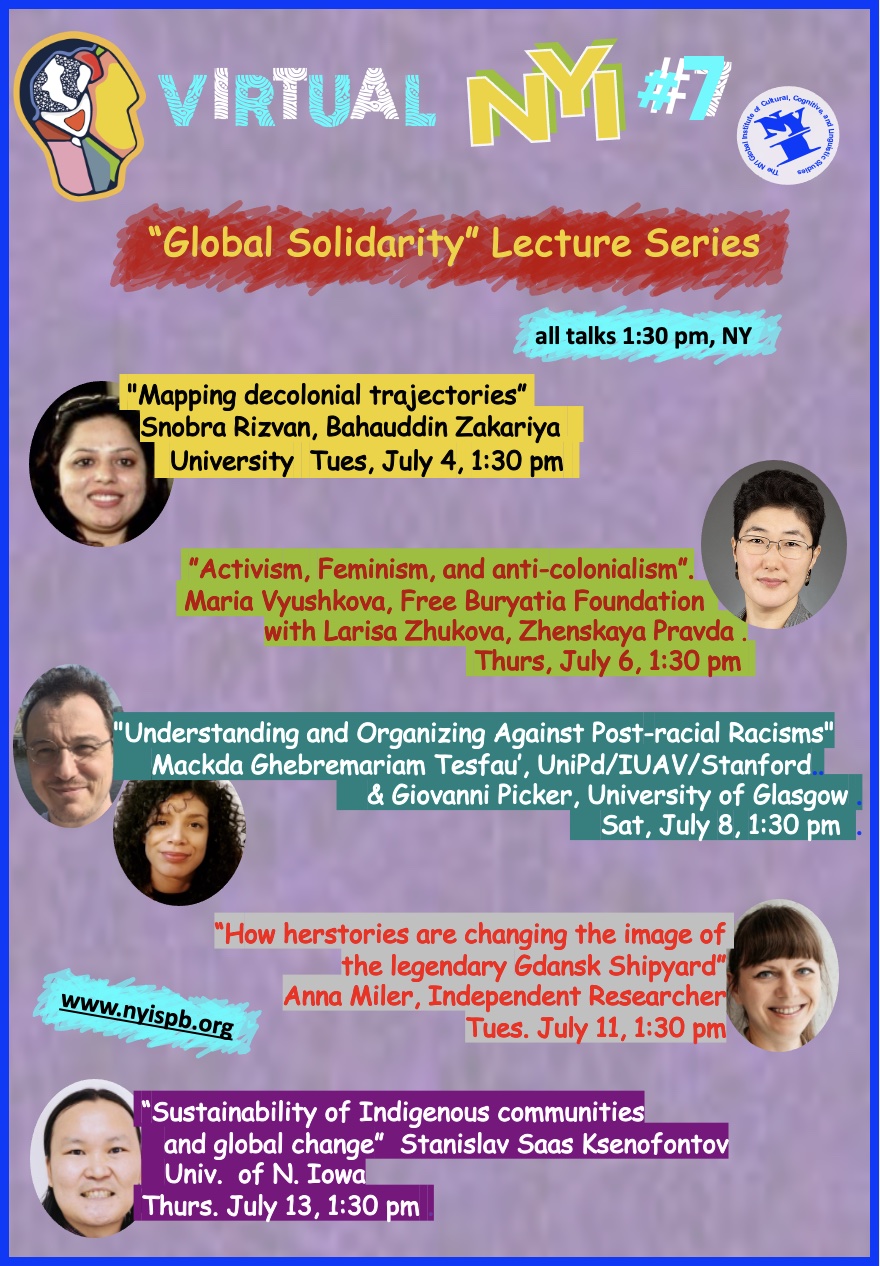
Distinguished Linguist Series
all talks at 1:30 pm
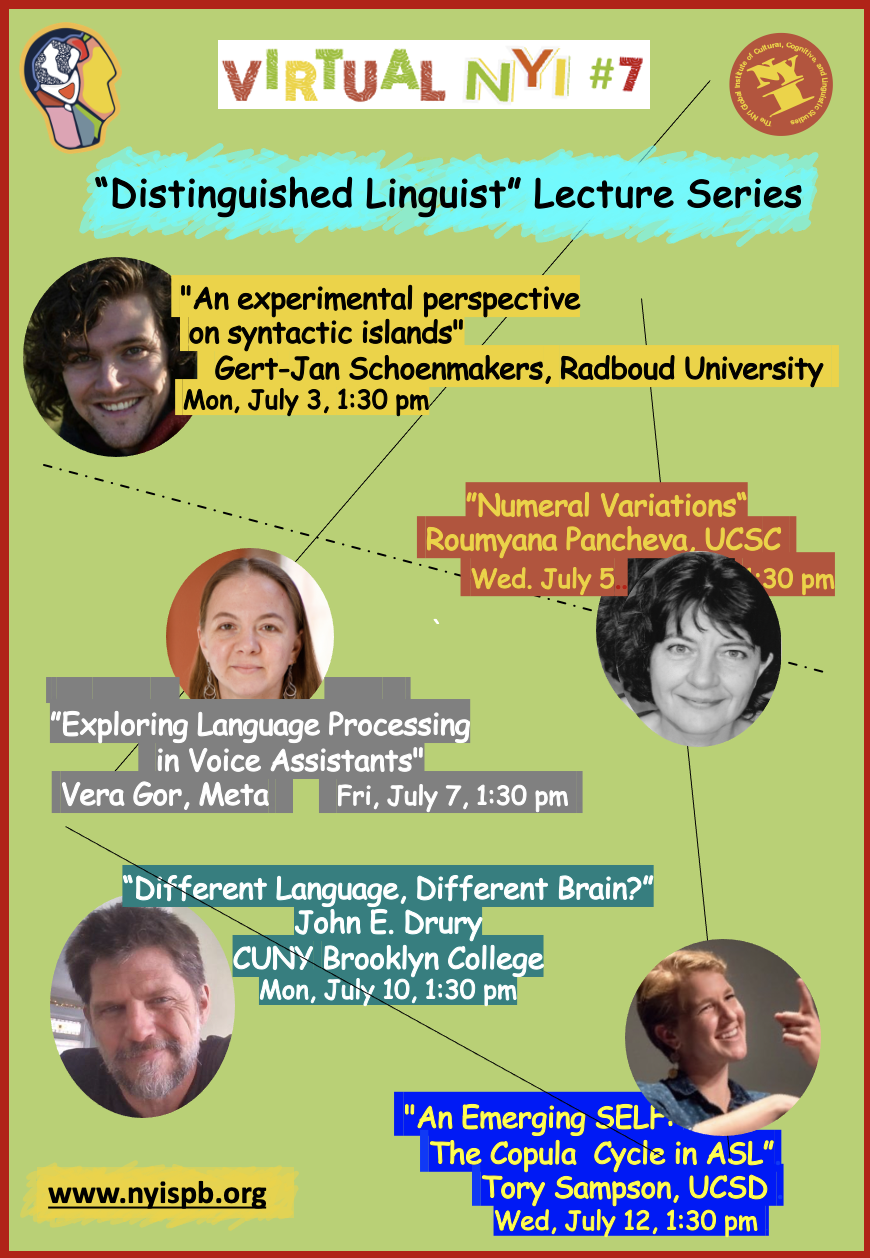
The NYI Universe presents:
Talking about Trees
"Super Local Movement: A Dialogue"
with John Fred Bailyn & Adam Szczegielniak
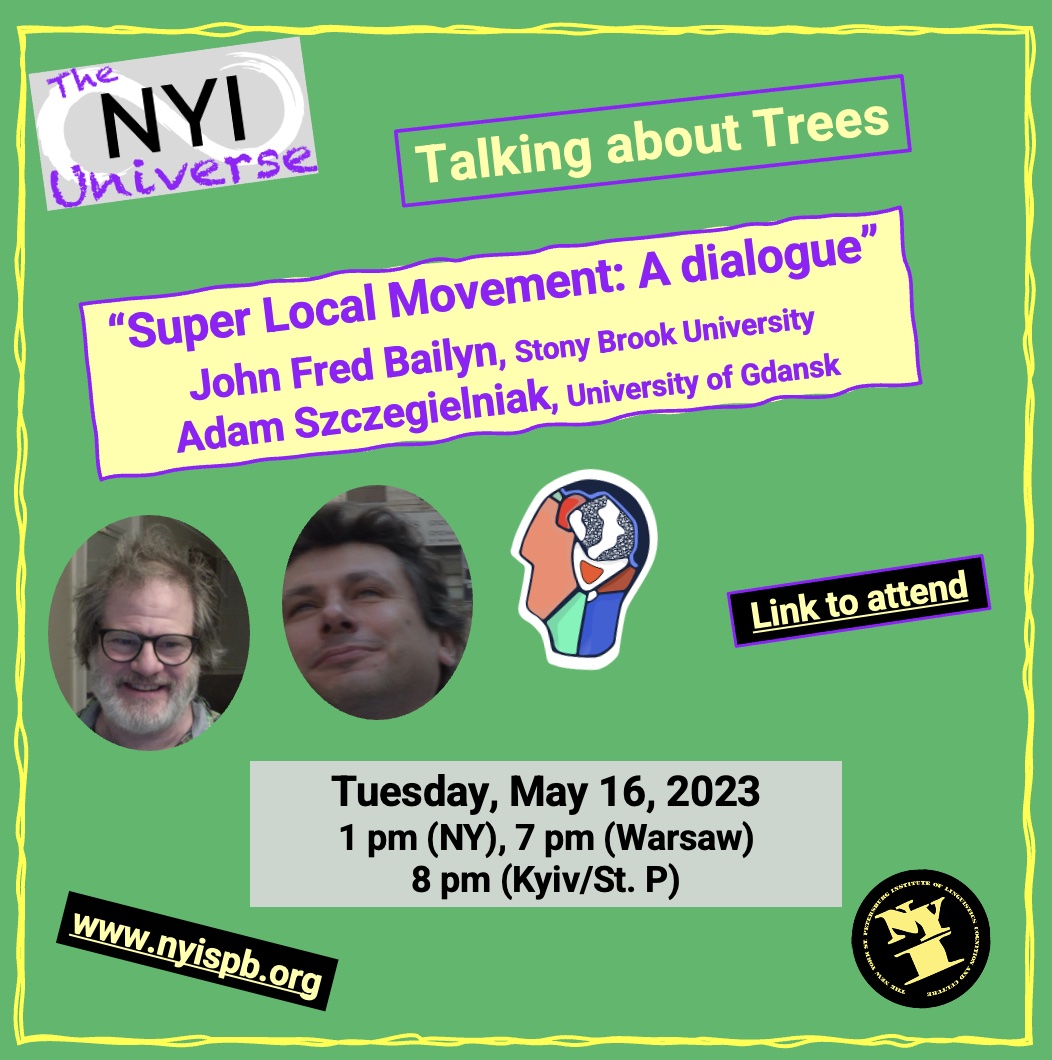
Tuesday, May 16, 1 pm (NY)
Welcome to the Spring 2023 NYI Universe!
Writing against Borders presents:
"Cinepoetries with Abdur and Alexandra"
Mon. May 1, 9:00 am (NY)
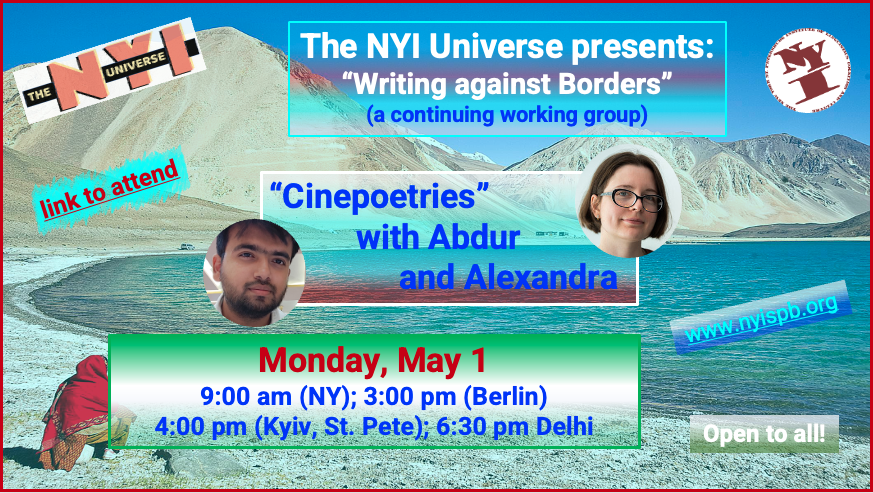
Welcome to the Spring 2023 NYI Universe:
Café Elsewhere:
“Free-for-All: Bring your own grief, joy, inspiration, and fury.”
Friday, April 28, 2023, 10:00 am (NY)
